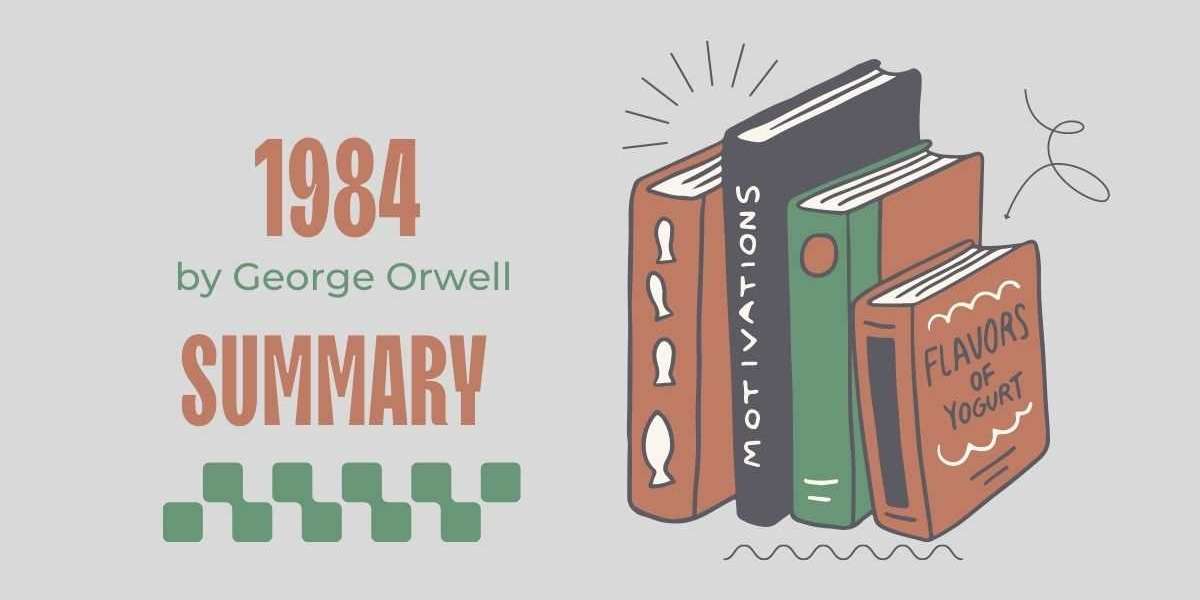In the realm of classic literature, George Orwell's '1984' stands as an indomitable force, a powerful warning against the encroachment of totalitarianism, and a stark portrayal of a dystopian future that continues to captivate and terrify readers decades after its publication. Published in 1949, this prophetic masterpiece transcends time, offering readers a chilling glimpse into a world governed by surveillance, propaganda, and the omnipresent Big Brother. As we delve into the intricacies of '1984,' we'll explore its themes, characters, and enduring relevance in our modern world.
The Nightmarish Setting:
1984 by George Orwell is set in a grim and oppressive world characterized by perpetual war, a stifling regime, and the eradication of individuality. The story unfolds in the superstate of Oceania, where the ruling Party, led by the enigmatic Big Brother, exercises total control over every aspect of citizens' lives. The ever-watchful eye of the Thought Police ensures conformity and punishes even the slightest hint of dissent. Orwell's vivid depiction of this bleak future serves as a cautionary tale about the dangers of unchecked government power and mass surveillance.
Winston Smith: The Reluctant Rebel:
Our protagonist, Winston Smith, serves as a conduit for readers to explore the harsh realities of Oceania. Winston is a low-ranking Party member who becomes disillusioned with the regime's lies and oppression. His clandestine affair with Julia, a fellow Party member, becomes a symbol of their defiance against the Party's oppressive rule. Winston's journey from compliance to rebellion mirrors the internal struggle faced by those who dare to question authority, making him a relatable and sympathetic character.
Big Brother: The Faceless Tyrant:
At the heart of Oceania's totalitarian rule stands Big Brother, an omnipresent figurehead who embodies the Party's absolute authority. Big Brother represents the dehumanizing effects of a regime that seeks to erase individualism and manipulate reality through propaganda. The Party's slogan, "War is Peace, Freedom is Slavery, Ignorance is Strength," exemplifies the distortion of truth and language, a central theme in the novel.
The Surveillance State:
One of the most chilling aspects of '1984' is its portrayal of pervasive surveillance. Telescreens, which both broadcast Party propaganda and monitor citizens' every move, are a constant reminder that privacy is a luxury of the past. Orwell's depiction of this surveillance state, while written in an era before the digital age, remains startlingly relevant today, as concerns about government surveillance and data privacy continue to shape our world.
Relevance in the Modern Age:
'1984' continues to resonate with readers because its themes remain disturbingly pertinent. In our era of social media and digital surveillance, the novel's warnings about the manipulation of truth, the erosion of privacy, and the dangers of unchecked power ring all too true. Orwell's insights into the fragility of democracy and the potential for authoritarianism to take root serve as a stark reminder of the importance of vigilant citizenship.
Conclusion:
George Orwell's '1984' is more than just a work of fiction; it is a haunting reflection of the perils of totalitarianism, the erosion of individual freedom, and the power of the state to control the narrative. As we navigate the complexities of the modern world, '1984' serves as a sobering reminder of the enduring need to protect our freedoms, safeguard the truth, and question authority when necessary. In the face of oppression and surveillance, it is up to us to ensure that the nightmarish world of '1984' remains confined to the pages of a book and does not become our reality.








